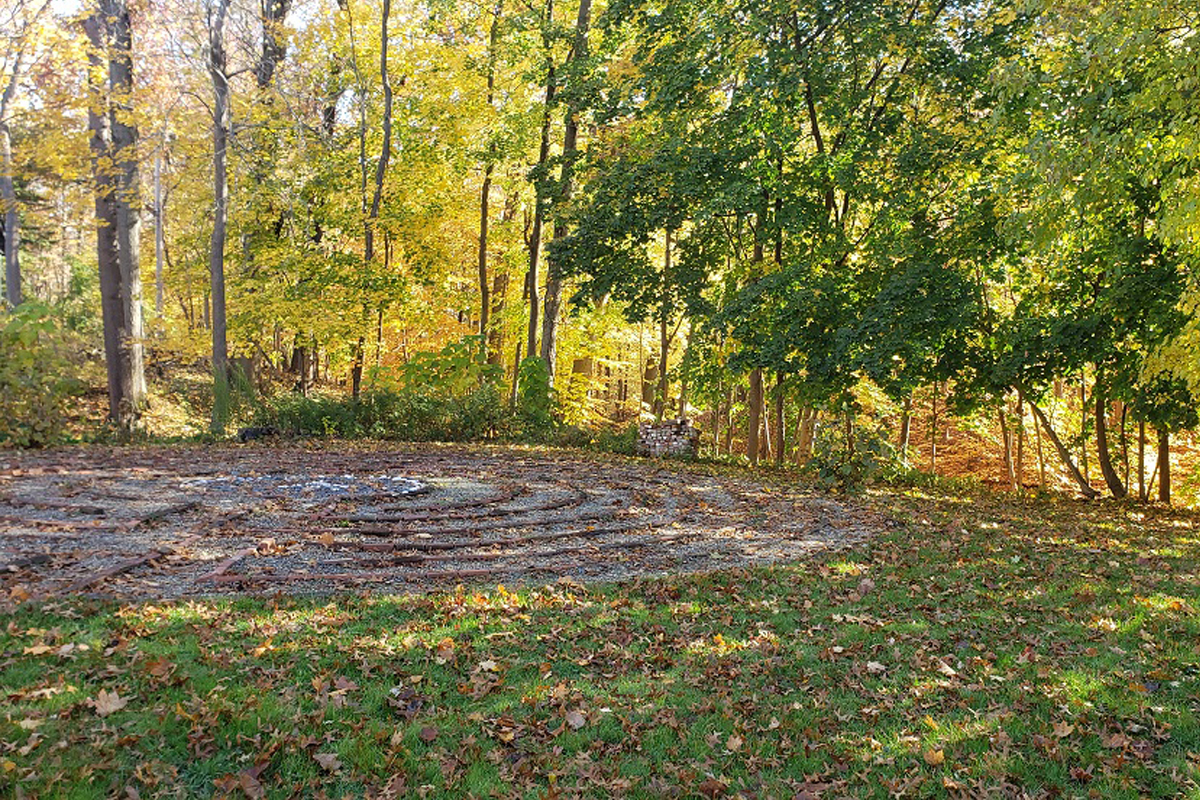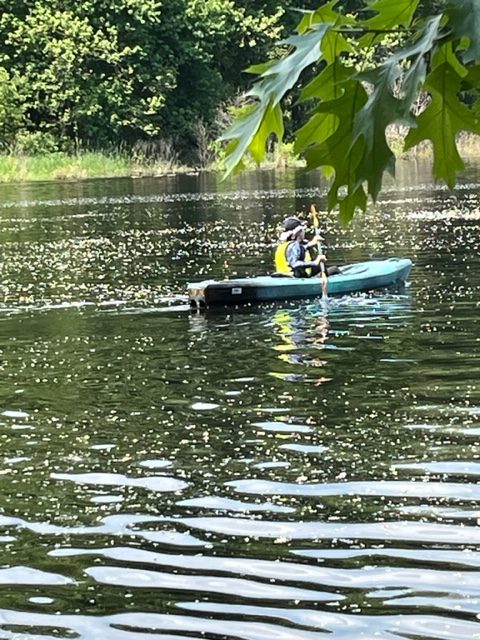Swimming in Beauty: Lessons on Eco-Spirituality from a day at the Farmington River


A few weeks ago, on a hot day in early June, I dove into the Farmington River in Collinsville, CT, a small town outside Hartford. I was there with a group of international students and colleagues from HIU for an afternoon of boating. We were a raucous bunch, with much hilarity in what for some was a totally new experience and, for us all, the sheer pleasure of being out on the water. I helped guide some of those new to kayaking and then had my turn to be the newbie as I tried out the stand-up paddleboard for the first time. Wobbly at first, I was grateful for others’ shouted help and encouragement. Eventually we got hot in the sun, and some of us decided to swim. The cool water was a shock when I dove in, and felt so good on my warm skin.
I could see underwater with my goggles, and even though the river was murky with silt, the afternoon sun lit up the water. I saw tiny fish darting in the shallows, long strands of eelgrass waving with the current, shadows of bigger fish deeper down. Microbes and insect larvae of various kinds filled the water too, invisible to my eyes but clearly present; mayflies hatched from these larvae danced in the air above the river. When I came up, my eyes at water level, a great blue heron launched itself up and overhead; a small turtle sunned itself on a rock near the shore, and trees of many kinds – catalpas and sycamores and maples – created shade near the banks. Later, once we’d dried off, we all went to a colleague’s nearby home, where a wonderful feast awaited us, along with more laughter, conversation, and pleasure in being together.
The Human Spiritual Experience
What does any of this have to do with spirituality – or eco-spirituality? Many would surely experience a day like this as having much to do with their spirituality: the joyful human connections, the experience of play, the beauty of the river and its life created by God and/or filled with sacred presence, the feasting at the end. All of these are rich aspects of human spiritual experience. Eco-spirituality in the way I understand it includes all of this but encompasses much more as well. Here are some of the kinds of things our new Eco-Spirituality Graduate Certificate can help you explore from this type of experience:
- Interspecies and place-based relationships: What does it mean to belong to a particular place, with all its creatures, waters, elements, needs, beauty, losses, and loves? How do these others become Thou’s to me, beloved members of my larger community, my kin circle, even my family? And how does our sense of the divine mystery that is nature itself, or that permeates all of nature, expand through attunement to our biological and spiritual entwinement with these creatures and with all the forces and waters and minerals and life forms of Earth – indeed, with galaxies long vanished or still visible in the dark night sky, whose stardust fills our bones?
- Environmental ethical relationships: What do the higher-than-average temperature and the lower-than-average river level of our boating day in June reveal about shifting climate and rainfall patterns in New England or North America, the planet? How does water pollution affect riparian life and human health, all creatures’ lives in our water-based biotic relations? Where did the food we feasted on come from, how was it grown or raised, and what impacts does this process have on the local soil, waters, emissions, farmworkers and their children, and the other “essential workers” through whose labor (and perhaps exploitation) we eat?
- Emotional, psychological, and justice-oriented relationships: For those privileged with access to clean flowing water to dive into, in a still relatively intact bioregion, with food and community to enjoy, the future may feel like a happy extension of the present. But for many on Earth, climate anxiety/panic/rage, shocking economic and environmental injustice, helplessness at political polarizations that make large scale change feel impossible, the impact of the accelerating breakdown of planetary systems we rely on: all of this takes a tremendous emotional and psychological toll, especially on young people and especially in the Global South. What kind of future can we still build?
- Religious and spiritual relationships: How can established religious traditions change from the inside – perhaps in quite radical ways – to begin to address these fundamental and consuming questions of interspecies belonging, of the ecological interpermeability of all things and of the crises threatening us all? What new forms of religious ritual, spiritual practice, communal and social transformation, or breakthroughs of consciousness, soul-deepening, and courage are needed? What kinds of religious leadership is the planet itself calling for – and how can you attend to that call and gain the capacities to respond to it?
Our community and hilarity, our interreligious breadth, the land and creatures and wildness of your place and your heart – and perhaps our Eco-Spirituality Graduate Certificate – are calling you. Come dive in!
